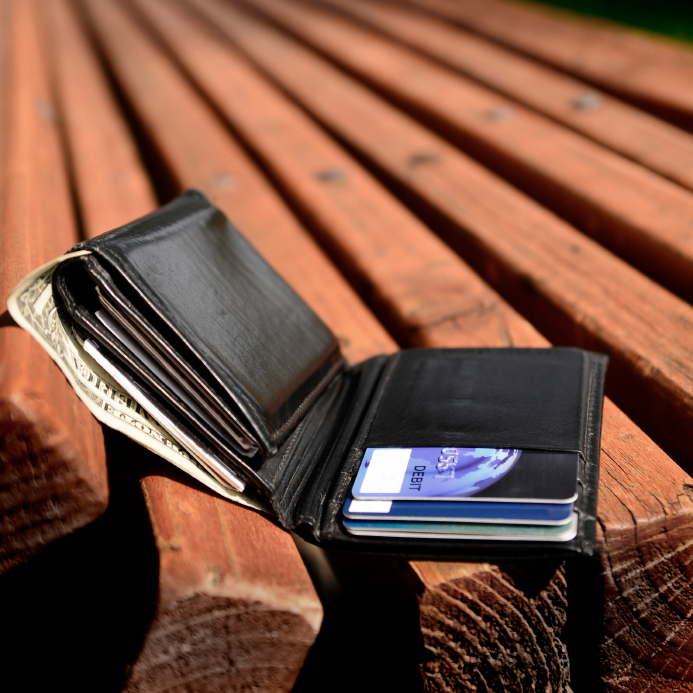 While traveling, you may end up in a tricky situation that’s more or less straightforward to handle back home, but can turn out to be rather complicated abroad.
While traveling, you may end up in a tricky situation that’s more or less straightforward to handle back home, but can turn out to be rather complicated abroad.
Although some lucky folks never have any close encounters of the awkward and messy kind, even if they travel a lot, some of us can hardly go on a single trip without committing one of these typical “fails”.
Losing a Credit Card
The ominous feeling you get while fruitlessly searching your wallet, pockets, and bag for your plastic money is anything but pleasant — especially when it happens with a one-kilometer queue of impatient customers breathing down your neck. Such incidents are particularly annoying abroad, where you cannot simply walk into the closest branch office of your bank to get a new card.
After the initial shock has worn off, you basically have two options: you can try to recall where you might have lost your card and (hopefully) retrieve it, or you should call your card provider and cancel the card to prevent credit card fraud. Unfortunately the latter option is usually better — unless you are absolutely sure that you’ve just forgotten the card in the checkout section of the last shop. 
Getting a new card from home by mail takes ages, so after cancelling the credit card you obviously need some alternative sources to make ends meet. If you are traveling with friends or relatives, they should be willing to help you out: just transfer money to them online from your account back home so they can withdraw it for you from a local ATM.
If you are on your own, however, you’ll need to look for the nearest money transfer service, such as Western Union. Your family or friends back home will be able to send you some small sums online, and you can pick them up at the closest branch office.
All you need is a valid ID, but the paperwork required can sometimes be a nightmare: at least, that’s what I found out in China, where I took me about two hours to fill out all the forms!
Missing a Flight
Getting stuck in a traffic jam on your way to the airport, uncomfortably aware that your flight leaves in exactly one hour is not particularly amusing. It’s even less so when you eventually arrive only to discover that the plane didn’t bother waiting for you.
Fortunately, this seems to happen more often when you return home rather than upon leaving. Once again, however, the initial feeling of desperation might at first limit your ability to act rationally.
 There is probably someone waiting for you at home: the first thing to do is to let them know that your trip will take longer than anticipated. If you are supposed to be at work or school tomorrow, try to come up with a creative excuse as to why you missed your flight; anyway, letting your boss or professor know as soon as possible is a must.
There is probably someone waiting for you at home: the first thing to do is to let them know that your trip will take longer than anticipated. If you are supposed to be at work or school tomorrow, try to come up with a creative excuse as to why you missed your flight; anyway, letting your boss or professor know as soon as possible is a must.
Next find the customer service counter of your airline. Some airlines have a policy of re-routing you to the next possible flight (for a not-so-small fee, alas). Since most, however, don’t, you might have to book a new flight altogether. This can be surprisingly expensive, as flights booked for the same day will max out your credit card much faster than one reserved well in advance.
However, your travel insurance company usually compensates you for some of the expenses. It’s advised to contact them before purchasing a super-expensive flight, though.
If you have a domestic or short-distance flight, alternative means of transport might turn out to be cheaper than flying. If you are traveling in mainland Europe, for example, an overnight train could take you to your destination by the following morning, allowing you to avoid messing up your entire schedule.
Getting Sick
While having to see a doctor is not a fail in itself, some sort of fail did probably take place beforehand: Perhaps you’ve eaten some dodgy street food or ignored the recommended vaccinations for your destination.
In less than urgent situations you’ll have to locate a clinic by yourself — calling an ambulance because of diarrhea is both expensive and embarrassing. (Emergencies are quite another matter, of course.)
 In some countries a doctor who speaks English or, alternatively, your mother tongue won’t just be around the next corner, so finding one is the first challenge. Assuming you are staying at a hotel, the receptionist should be able to recommend you the nearest international clinic.
In some countries a doctor who speaks English or, alternatively, your mother tongue won’t just be around the next corner, so finding one is the first challenge. Assuming you are staying at a hotel, the receptionist should be able to recommend you the nearest international clinic.
If the hotel staff is unable to advise you, Google is your only friend. In some cases consulting your embassy or consulate is another valid option.
Getting treatment abroad is one of the major reasons you should have a travel insurance policy. Your insurance company might cooperate with selected local clinics, so make sure to go to one of these if available.
If you don’t have international insurance, you may have to pay at the clinic. Don’t forget to take all bills and receipts with you, as the insurance company will be asking for those when you request compensation. Unfortunately, some red tape will definitely be involved.
Abroad, you might not go and see a doctor as easily as you would back home since the effort and expenses are often higher. Remember, though, that some harmless-seeming symptoms might turn into a more serious disease.
Becoming Better at Failing
Since failing is unavoidable for some of us, being mentally prepared to cope with unexpected incidents is the key.  Of course, losing your passport just before crossing a border while backpacking or getting into trouble with the local authorities after accidentally camping in someone’s backyard can be nerve-wrecking.
Of course, losing your passport just before crossing a border while backpacking or getting into trouble with the local authorities after accidentally camping in someone’s backyard can be nerve-wrecking.
However, after weathering a crisis successfully, you’ll be richer by one experience and (hopefully) learn how to avoid committing the same faux-pas again!
Maunu Suni is an international student from Finland, who has just spent a very sunny summer in Munich trying to get a good tan. His interests are far too many to list, but they include football, running, art, and traveling. He used to live in the UK for one year and also spent an exchange semester in Shanghai recently. The latter is how he found out about losing one’s plastic money in China, by the way.
(Image credit: iStockphoto)
Getting sick — If you are a citizen of an EU member state, your country may well have a reciprocal healthcare agreement with the country you are in, if it’s another member state. In that case you should get treatment in the other country on more or less the same basis as you would do at home. (This may mean you have to pay for treatment while abroad but then reclaim the costs when you get home — so ask for receipts, and don’t lose them.) If you are a British citizen, get an EHIC card before you travel (Google it); I don’t know for sure but the same probably applies to other EU member-state citizens.
@Rolf:
I’m insured via the German public healthcare system, and we have the EHIC card too. My public healthcare provider issues a little plastic card that I have to show every time I get medical treatment in Germany, but it doubles a an EHIC card when I go abroad, at least in selected EU member states.
General information on the EHIC, regardless of member state, can be found here:
http://ec.europa.eu/social/main.jsp?catId=559&langId=en